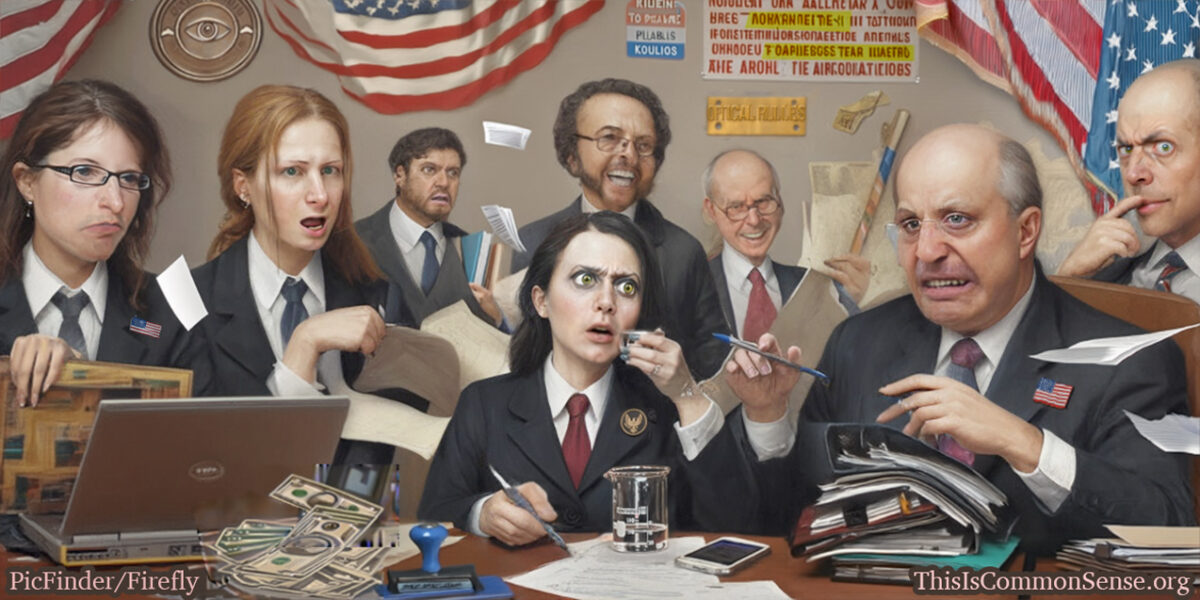The U.S. Supreme Court giveth and the U.S. Supreme Court taketh away.
A slew of Supreme Court decisions is keeping us off balance. While we were still reeling from the blow delivered by Murthy v. Missouri’s go-ahead for federal suppression of social-media speech, the court also acted to rein in runaway bureaucrats.
The decision, which some call a “major blow to big government” — let’s see how it plays out before echoing this — is Loper Bright Enterprises v. Raimondo. In this 6 – 3 ruling to limit the administrative state’s power to expand its power, the court reversed its own 1984 ruling, Chevron USA v. NRDC.
According to Stanford Law professor Michael McConnell, Chevron meant that when the actions of a federal agency — to stop you from cleaning up a pond (“wetland”) on your own property or whatever — end up being litigated, courts must “defer to the agency’s own construction of its operating statute” unless that construction is too wildly unreasonable.
Agencies consequently enjoyed “considerable leeway in determining the scope” of what they can do to us.
Guess what. They typically prefer more power to less, less constitutional restraint to more.
“Chevron is overruled,” the new ruling states. Courts must “exercise their independent judgment in deciding whether an agency has acted within its statutory authority, and courts may not defer to an agency interpretation of the law simply because a statute is ambiguous.”
Maybe more courts will now more often stop runaway bureaucrats in their tracks.
This is Common Sense. I’m Paul Jacob.
Illustration created with PicFinder and Firefly
—
See all recent commentary
(simplified and organized)

4 replies on “The Court v. the Power Grabbers”
Even with the demise of Chevron, maybe we shouldn’t expect this decision to be far-reaching. How many judges will be willing to overrule ‘expert’ decisions made by bureaucrats? Most courts will exercise their ‘independent judgment’ and most decisions will favor agency rules.
‘Twould be nice if, someday, the Court acknowledge the problem of Congress attempting to delegate its responsibilities.
Specifically, Congress is not granted a power to amend the Constitution on its own authority,while the over-ride for a Presidential veto is not reduced to a simple plurality in the case of delegating legislation. We must conclude, then, that granting the Executive branch regulatory powers or an ability effectively to declare war is unconstitutional.
The entire DemoSocialist establishment has been at war with the Court ever since it overturned Wade v Roe.
As a Libertarian I think this ruling is (or could be)a big deal for draining the swamp and putting power back to the states or counties or cities the way it was intended. I am surprised we haven’t heard more about it.